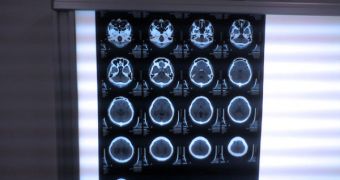Over the past couple of years, functional Magnetic Resonance Imaging (fMRI) has become one of the most impressive brain-imaging methods available. The technique has the ability to observe the changes that take place in the brain of a person in real-time. It can notice which portions of the cortex are active, as well as the feeling with which these areas are connected. But experts are currently pondering whether data obtained from fMRI should be used as evidence in courts of law, which have the power to send a criminal to their death, LiveScience reports.
There are a number of factors to be considered, judges say. For one and most importantly, the accuracy of fMRI needs to be weighed in carefully. Scientific studies have demonstrated that the method succeeds in telling people who speak the truth from those who are lying with an accuracy of 92 percent. This is definitely a plus, analysts agree. These data were collected after an experiment devised by researchers at the Harvard University, which gave people a chance to lie following a coin-toss test. Some of the participants seized the opportunity, and their answers could be cataloged as lies using fMRI alone. Professors Joshua Greene and Joseph Paxton were behind this investigation.
But where fMRI can really play an important role is in detecting activation patterns in specific regions of the brain, such as those associated with decision-making and behavioral control. Many defense attorneys try to get their clients off the hook pleading for temporary insanity, but, in the future, they would have to also prove that by showing fMRI scans of how their clients' prefrontal cortices activate in a number of tests. There is no way for the alleged criminals to trick these tests. The activation patterns cannot be consciously controlled, and, if there is something to reveal, they will succeed in doing so.
“When you build a model based on people in the laboratory, it may or may not be that applicable to someone who has practiced their lie over and over, or someone who has been accused of something. I don't think that we have any standard of evidence that this data is going to be reliable in the way that the courts should be admitting,” New York University neuroscientist Elizabeth Phelps told Wired earlier this year. The issue that remains to be decided is whether fMRI scans should be accepted as pieces of evidence in capital-crime cases, which merit the death sentence.

 14 DAY TRIAL //
14 DAY TRIAL //